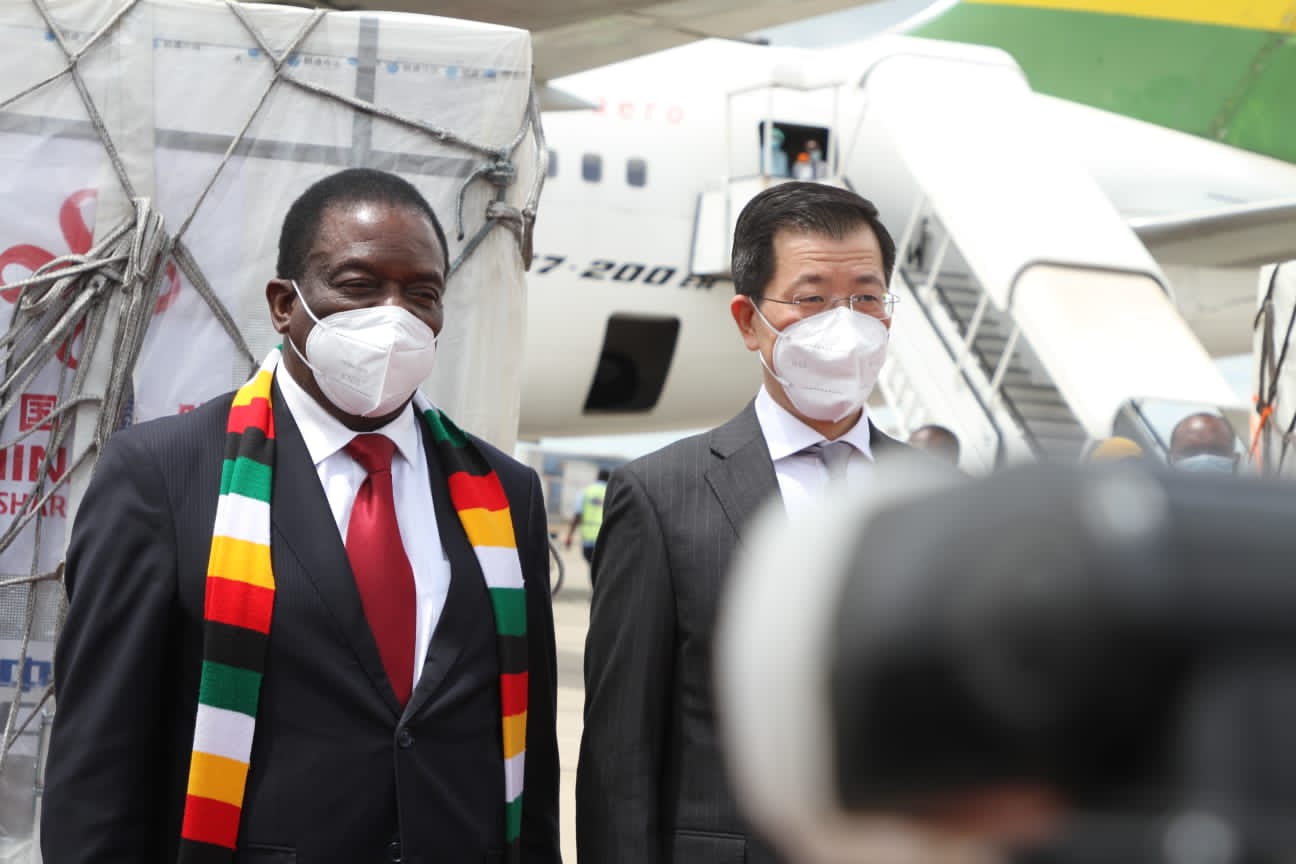By Joel Mandaza
When COVID-19 became a reality, the world was unprepared.
Very few countries, save for those already rich, were ready to confront the global health pandemic.
This saw the birth of a predatory form of diplomacy, known as vaccine diplomacy.
International Relations academic and former Nigerian Presidency Advisor, Steve Itigbu, describes how the concept works.
“Having developed multiple vaccines in the absence of a coherent global momentum, some powerful states began using their jabs to strengthen regional ties and enhance their own power and global status,” Itigbu writes in an Op-Ed for the Australian Institute of Foreign Affairs.
China has been the most aggressive of all countries on this front, to this date distributing its Sinopharm and Sinovac vaccines to more than 69 countries – Zimbabwe included.
To date, Zimbabwe has received donations of vaccines running into millions, with a promise of more.
While strategic access to resources should be lauded, it is becoming concerning how Zimbabwe as a country is failing to foot its own COVID-19 costs and is having to rely on donations.
Is it not dangerous to anchor the nation`s response on the benevolence of Beijing and the Chinese communist party?
At a time when Chinese companies are the frontrunners in corporate misdemeanors in Zimbabwe especially in Mashonaland East.
Barely a week passes without a community challenging a Chinese firm over intended displacements and bullying.
Authorities have given terse statements to save face, but the Chinese have become the proverbial untouchables in Zimbabwe.
Their impunity could be stemming from the fact that they have single handedly driven Zimbabwe`s vaccine program.
In recent times, government sympathisers have claimed that Zimbabwe is experiencing economic growth (although ordinary citizens believe otherwise).
The audacious have even described the country as ‘the fastest growing economy in Southern Africa.’
If truly the Zimbabwean economy is growing, it should follow that the country meets its own vaccine needs.
COVID-19 is no longer new, there should be budgetary provisions for the purchase of vaccines so that the country is not in perpetual debt to those who donate the jabs.
In his budget speech, Finance and Economic Development Minister Professor Mthuli Ncube acknowledged shortages in resources to fight COVID-19, especially in vaccine procurement.
“…despite the current efforts towards revitalization of our sector and successful roll out of COVID-19 vaccination program, it is apparent that gaps still exist in the health delivery system attributed to shortage of medicines, critical infrastructure and equipment,” said Minister Ncube in his budget speech.
His claims do not tally with the gospel he has been preaching, saying Zimbabwe has a budgetary surplus.
The word surplus refers to funds held after satisfying all attendant needs.
So, if there are still gaps in funding the country`s pandemic response – how is it a surplus?
It means the country is being held hostage by an administration which believes its own hype to the extent of withholding funding meant to procure vaccines and Covid-19 consumables because they know China will carry the burden.
At face value it is easy to think, “why pay for it, if you can get it for free?”
Below is why the approach could be fatal in the long run.
Epidemiologists and health experts are of the opinion that there could be another pandemic on the way.
A study led by Marco Marani in Italy showed that with each passing year, there is increased possibility of a recurrence.
Supposing that the research and many others hold true, it means Zimbabwe will be sinking in debt with each passing pandemic.
This paves way for dubious decision making and presents a general threat to sovereign decisions.
Instructive ancient wisdom also speaks on the drawbacks of persistent borrowed.
“Vimba nechako, chimwango chekukumbira hachina ndima.”
This translates to borrowed ornaments barely bring sustenance.
We risk seeing a repeat of the HIV and AIDS situation.
Since the emergence of HIV, which dates back to 1983 and the eventual discovery of Antiretroviral medication, Zimbabwe is yet to achieve self-sustenance.
Up to date, the Bill and Melinda Gates foundation and other non-profits, still assist Zimbabwe with their ARVs.
This is despite the country having an AIDS levy, which should adequately cover costs.
Failure to finance responses to health crises, create room for corruption as officials can improperly utilise resources knowing that someone will bear the costs.
Some Zimbabweans are skeptical of the Chinese vaccines and have been asking for wider options, in the form of Pfizer or Johnson and Johnson.
The stalling vaccine program could benefit a lot from more choices, as those who have misgivings with a particular vaccine can pursue another.
However, when reliant on donations that is complicated, and has not happened.
At the end, Zimbabwe`s vaccine program is suffering and has slowed down.
Maybe it is true what they say, that cheap is expensive.
There could be a hidden cost to the donated jabs.


![2025 National Budget Statement [Download]](https://openparly.com/wp-content/uploads/2024/11/Witholding-tax-on-Betting-2-420x280.png)
